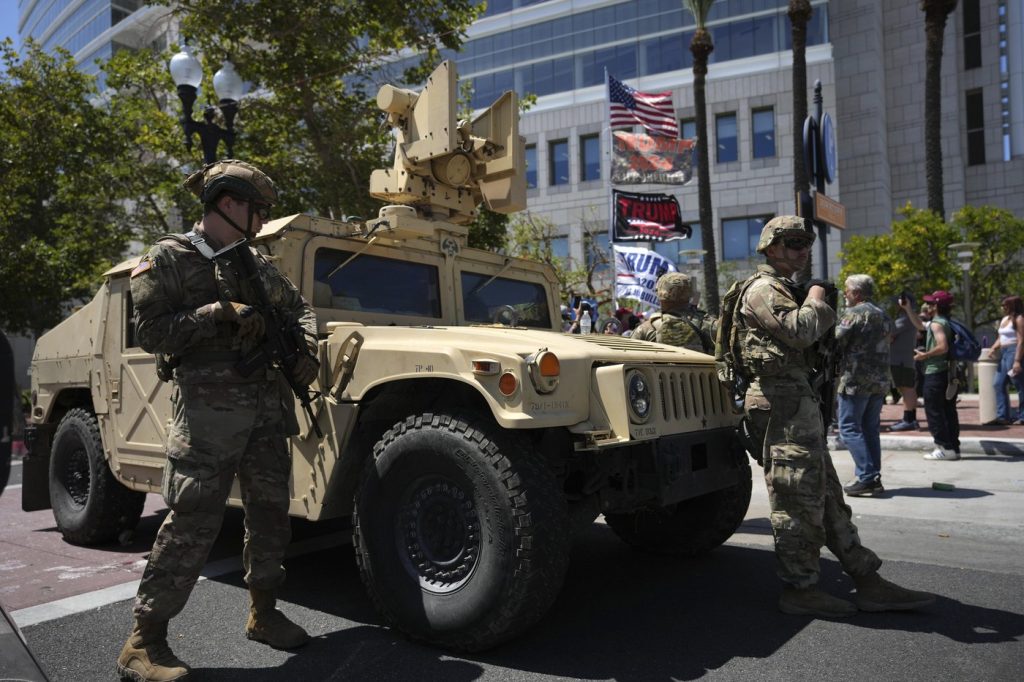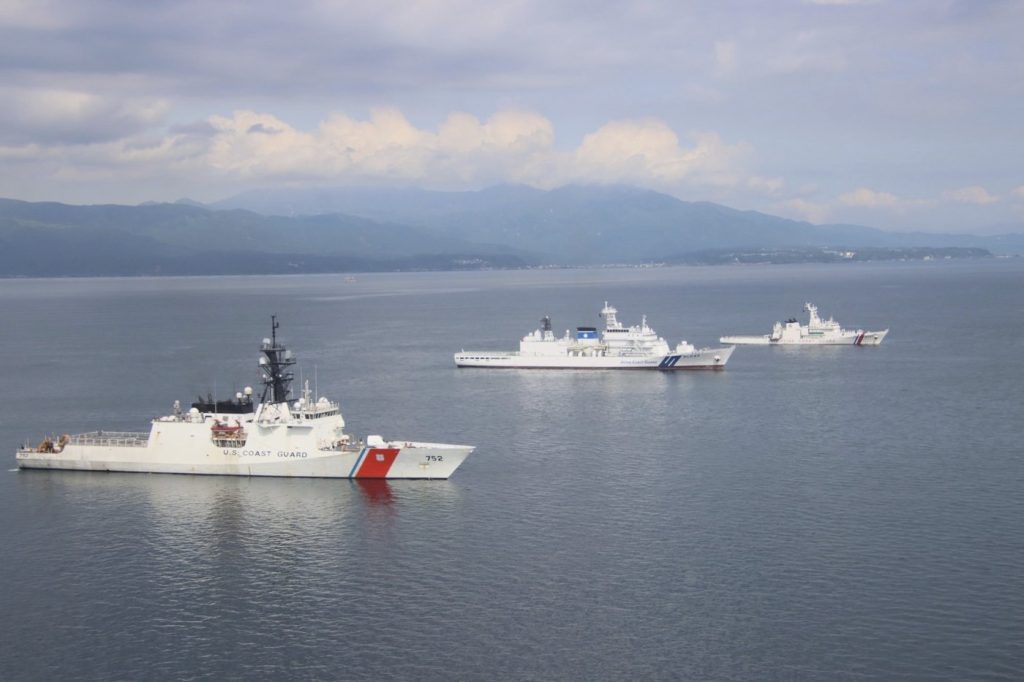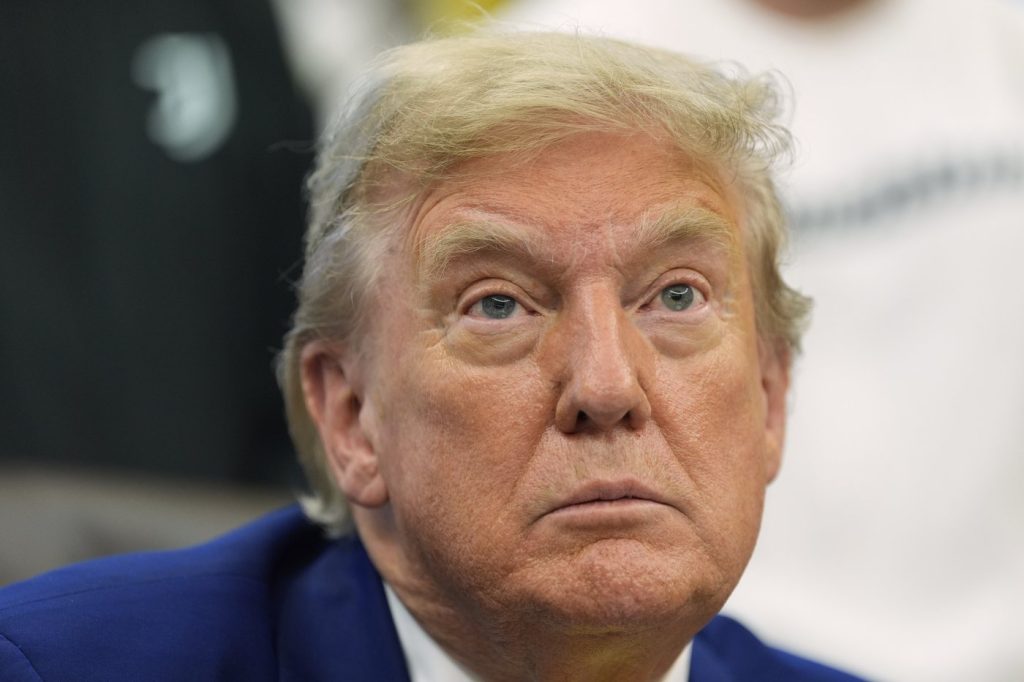SAN FRANCISCO (AP) – California's legal challenge against the Trump administration regarding the deployment of National Guard troops in Los Angeles returned to a federal court in San Francisco for a brief hearing. This comes after an appellate court granted President Donald Trump a significant procedural victory.
U.S. District Judge Charles Breyer refrained from issuing any further rulings during the hearing. Instead, he requested both parties to submit briefings by noon on Monday to discuss whether the Posse Comitatus Act, which forbids U.S. military personnel from performing civilian law enforcement duties, is being breached in Los Angeles.
The hearing followed the 9th Circuit appellate panel's decision, which allowed President Trump to maintain command of the National Guard troops he dispatched in response to protests over immigration raids. California Governor Gavin Newsom claimed that a violation of the Posse Comitatus Act is imminent or possibly already occurring, but Breyer postponed consideration of this allegation last week.
Vice President J.D. Vance, a Marine veteran, visited Los Angeles to meet with the troops, including Marines assigned to protect federal buildings. Vance stated that the court found Trump’s order to deploy federal troops was legitimate and suggested that the president would take similar actions if deemed necessary.
“The president has a very straightforward proposal for everyone in every city, town, and community—if you enforce your own laws and protect federal law enforcement, we won’t need to send in the National Guard, as it’s unnecessary,” Vance told reporters after inspecting a federal multi-agency operations center and a mobile command unit in Los Angeles. This visit coincided with a decrease in violence following previous clashes between police and protesters, as well as incidences of vandalism linked to immigration raids across Southern California earlier that month.
National Guard troops have been participating in some immigration raids, with Marines reportedly detaining a civilian during the initial deployment. This marked the first instance of federal troops detaining a civilian since their re-assignment to Los Angeles.
While Breyer ruled that Trump acted unlawfully when he activated the National Guard over Governor Newsom’s objections, the appellate court's decision set aside a temporary restraining order implemented by Breyer. The judge has asked both parties to clarify whether he or the appellate court retains authority to issue an injunction under the Posse Comitatus Act.
California has sought a preliminary injunction to restore control of the troops to Newsom amidst a decrease in protests. Trump, a Republican, has contended that the presence of the troops has been essential for maintaining order. In contrast, Newsom, a Democrat, argued that the troops’ presence heightened tensions, undermined local authority, and misallocated resources.
Recently, Los Angeles Mayor Karen Bass rescinded a curfew that was established following vandalism and confrontations with police during the protests against immigration enforcement activities.
Trump invoked Title 10 to federalize members of the California National Guard, allowing him to activate these troops during scenarios classified as invasions, rebellion, or when he is incapable of enforcing U.S. laws. However, Breyer clarified that Trump's authority to command state National Guard troops only extends to situations defined as rebellion or imminent rebellion, stating that the protests in Los Angeles do not reach this threshold.
The Trump administration maintains that federal decisions should remain beyond judicial review. Nonetheless, the appellate panel indicated that presidents do not possess unrestricted power over state National Guard units but acknowledged the Trump administration's justification based on the violent actions observed among protesters.
For the time being, the California National Guard remains under federal authority as the lawsuit continues. This situation represents the first instance of a president deploying a state National Guard without the governor’s consent since troops were sent to safeguard Civil Rights Movement participants in 1965. Trump celebrated the appellate court’s ruling as a "BIG WIN," suggesting that additional deployments might occur if deemed necessary. Meanwhile, Newsom cautioned that California might not be the last state to witness troops deployed onto its streets under Trump’s directive.












